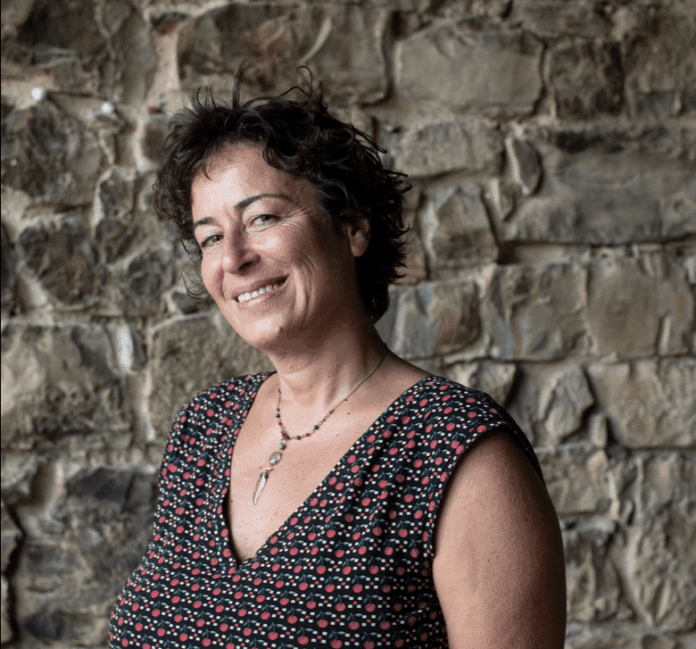Here is the translation of the given text from French to English:
Settled in Nice for several years, sociologist and writer Pinar Selek sees her trial for “terrorism” postponed once again. The Istanbul court has scheduled a new hearing for April 2, 2026. She still faces life imprisonment, under an international arrest warrant, despite four acquittals.
The Istanbul court decided on Tuesday, October 21, to postpone once again the trial of Pinar Selek. This postponement, the sixth in twenty-seven years, keeps the researcher under the threat of a life sentence. The academic, now a refugee in Nice, teaches at the University of Côte d’Azur as an associate lecturer.
“They think they can tire me out. But they won’t be able to extinguish the fireflies. The fire of solidarity is already going out, the embers are scattering. It’s the power that is losing,” she declared after this latest postponement announcement.
Pinar Selek has lived in exile since 2009. She became a French citizen in 2017. Since arriving in Nice, she actively participates in the local academic and associative life. She leads courses, conferences, and debates around freedom of research, peace, and human rights. For her students and colleagues, her presence symbolizes the defense of academic freedom against repression.
A case lasting since 1998
It all began in Turkey, in the summer of 1998. Pinar Selek was arrested after an explosion at the spice market in Istanbul. The attack, which killed seven, was quickly attributed to Kurdish groups. The sociologist was accused of being an accomplice. However, several independent expert reports have since established that the blast was due to an accident, not a terrorist act.
After two years of detention and torture, she was released at the end of 2000. Her commitment to minorities, notably Kurds, attracts the distrust of the Turkish authorities. In 2009, she left her country for France, hoping to continue her research freely.
But Turkish justice does not give up. Despite four consecutive acquittals, the courts continue to reopen the case. In 2023, a new international arrest warrant was issued, accompanied by a request for extradition. Interpol refused it, according to her lawyer, but the Turkish court claims not to have received an official response.
A symbol of academic resistance
In Nice, where she has been teaching for several years, Pinar Selek has become a figure of academic freedom. Her courses address the relationships between gender, politics, and society. Her students describe her as an engaged professor, approachable, and committed to transmitting scientific rigor without losing humanity.
She has many supporters. Academics, associations, and political figures regularly mobilize. In January, 517 researchers from 27 countries published an opinion piece in several newspapers to demand her definitive acquittal. In France, gatherings take place in Marseille, Paris, and Nice at each hearing.
On October 21, at Aix-Marseille University, the Institute for Advanced Study (IMERA) organized a day of struggle and awareness. The event took place in parallel with the Istanbul hearing. “As Pinar Selek does not attend the hearings in Istanbul, the support committee organizes mobilization days on the hearing days,” explained Valérie Manteau, a member of the Marseille committee, in a local media outlet.
Exiled researchers, like American historian Brian Sandberg, spoke to discuss the fragility of academic freedoms worldwide. A videoconference linked the meeting to the international delegation present in Istanbul.
A political and human struggle
Pinar Selek constantly affirms the political nature of her trial. “They take my example to scare other researchers,” she said as early as last February. For her, this persecution aims to silence critical thinking and intimidate the academic world.
Her struggle now goes beyond Turkish borders. In Nice, it embodies the defense of freedom of thought and teaching. In a context where academic freedoms are threatened in several countries, her story resonates strongly in research and cultural circles.
The French Communist Party condemned the Turkish court’s decision, denouncing “a new stage in the judicial and political harassment exercised by the authoritarian power of Recep Tayyip Erdoğan.” Its representative, Julien Picot, reminded that “justice has no borders” and that “international solidarity is stronger than repression.”
The next judicial meeting is set for April 2, 2026. In Nice, where she found refuge and recognition, Pinar Selek continues her teaching and writing. In her words and actions, she affirms that research, truth, and freedom are inseparable.


